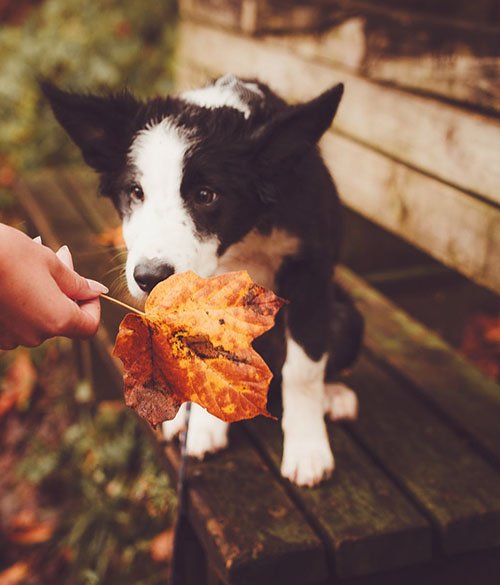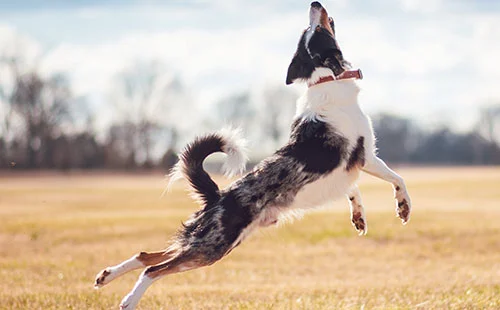A healthy dog is a happy dog. And a pooch is never happier than when they are out on a daily walk. These are animals that just love the outdoors. In the wild, this is their natural environment and this is where they thrive the best. It is important for their muscles bone strength mental stimulation and general well-being that they are exercised every single day. It is good for you too as it forces you to take exercise even when you don’t feel like it! This is why canines are recommended for people to keep themselves fit. Many owners often ask how often do you walk your dog in all seriousness. This is why it is important to know how often to walk your dog to keep them fit and active. So just how often should you walk your dog?
How often should you walk your dog?
Many owners often ask me in the clinic how many walks a day does a dog need? The answer depends on what breed of dog you have. This can vary based on variety. Small breeds such as dachshunds will obviously require less walking than a large type such as a bernese mountain dog.
As a general guideline dog should be walked between 30-minutes and 2 hours every single day depending on size breed and physical condition. Age also plays a factor in this calculation. Most owners will split up this exercise requirement into around 2 or 3 walks each day. Some owners even walk the dog up to five times a day and engage in smaller sessions. Do what is best for you and your pet These suggestions may not be realistic for you and your lifestyle.
Is also recommended that you walk your dog first thing in the morning as one of your walks. This allows your pup to empty its bladder or bowels first thing after a long night.
Try and get plenty of physical activity into your dog’s day if you cannot take them for a walk.
Good activities include:
- Playing fetch
- Tug of war
- You should not play tug of war with a young puppy, however.
Do I need to walk my dog every day?
Yes, you should be walking your dog every day. It may be considered cruel to keep your pet indoors for a day or more in a row. These animals need not only exercise but also mental stimulation to keep themselves healthy in both mind and body.

A dog that does not exercise every day will not be at peak fitness levels. May also turn to destructive behaviour and start damaging your furniture or property as a way of acting out and keeping themselves occupied. This may also occur if you do not provide enough activities and toys for your dog when they are in the house. The best solution to this is to always take your pup out every day for a walk unless you have a very specific reason for doing so. Situations, where you wouldn’t take them out every day, is if the weather is far too cold for them. Another situation is where they have an injury that they are recovering from
As a general guideline, you want to take your adult dog out for at least a 20-minute walk every day unless they are not able to do so. An elderly dog will still want to be walked and it would be good for them to do so just as long as you’re not overexerting them. Always watch out for signs of an exhausted dog in seniors. Puppies will need less exercise. Please see the section below on the puppy exercise calculator.
Do they get bored of the same walk?
Yes, they certainly can. Just like with people dogs can also get bored at the same route every single day. Just imagine how bored you be if you had to walk the same room every day without any change. It wouldn’t be your mental stimulation any good for one thing. Dogs may display their boredom through other behaviours such as problem behaviour in the house. They may start to be destructive or act out of place. The important thing to do to deter this behaviour is to mix up your routine a little. You may be a fan of routine but your dog may not necessarily feel the same way as you do.
Labradors can also be prone to this sort of behaviour in my experience as a vet. The best thing to do to change a walking route is to deviate and explore new areas as long as it is safe to do so. A friendly pooch will always like to meet new people and other dogs. I also like to explore and experience new sights smells and sounds in new areas. If your dog is used to walking in forest areas then maybe take them for a trip to the beach. If this isn’t practical and your dog is used to a countryside trail maybe try and find a source of water for them to splash about in.
They may also like to smell rabbits in a burrow area just for an example. They may also like seeing birds and other wildlife. Always ensure that she would dog is kept on a lead when near wildlife and also livestock such as near a farm. Remember that a farmer is within his rights to defend his property and animals if your dog is let off his leash. Always practice proper safety in these situations and keep your dog on a lead or under control.

Allow your dog to sniff about when exploring new areas. This helps to keep them occupied and help them to engage in their natural instincts. They may see themselves as pack leaders and like to explore their new territory before you do. You may often have seen your dog walking up ahead of you in situations like this. This is what they are doing and it’s good to let them engage in this behaviour. Dogs are designed to sniff around. It’s what they are good at and they absolutely love it! So let them engaged in this instinct and if they meet other dogs let them say hello. Just make sure you are on hand and supervise the dogs to make sure their behaviour is safe.
Do bored pooches sleep a lot?
It is quite likely that your dog sleeps a lot because he has nothing else to do. Yes, a bored dog will sleep a lot if they have nothing else to occupy themselves with. They may also so engaged in destructive behaviour if they are bored and without appropriate activities. Or that pup will also sleep a lot if they are very tired. This may occur if you are over-exercising your dog or the animal doesn’t sleep well at other times of the day or night. Always monitor your pooch and monitor their behaviour and body language.
The phrase “it’s a dog’s life” comes from this sort of behaviour. Dogs naturally sleep a lot and have a reputation for being lazy. Only you know your pet well enough to decide between the two. If your dog’s seems restless at other times of the day to this may be an indication that they are bored and need some more mental stimulation. You can provide this in the form of toys. If you don’t have time to play with your dog and you can look for some toys that move on their own to keep them busy.
How often does my pet need to pee or potty?
This will obviously vary from individual to individual. Each breed has its own exercise requirements and it’s important to know your dog and what they need. A dog will produce at least 10 ml of urine per pound of body weight per day as a general guide. In a perfect situation, a dog would be allowed out at least three to 5 times a day to be allowed to go to the toilet. I should be allowed to empty their bladder or bowels on these occasions and it would be helpful if you allow them to be able to do this. It is cruel to keep a dog inside when it needs to relieve itself.
How often should I exercise my puppy?
A really handy tip for or walking a puppy is to walk them for roughly 5 minutes for each month of her age. Roughly this will equate to 15 minutes once or twice a day up to the age of 3 months. Once they reach the age of 4 months you will expect to walk your puppy for 420 minutes up to twice a day and so on following this calculation.
It is important not to work a puppy too hard as they can damage their developing soft palate, bones and joints. This can cause problems later on in life. Pay attention to your puppies body language and see how they are getting on. If they’re showing any signs of overexertion and reduce the amount of exercise until your pooch can manage it.
Final thoughts
As a dog owner, it is your responsibility to find out how much exercise your dog needs and how often they should be walked. So How Often Do You Walk Your Dog? It is a great idea to research how much exercise your pet requires. Bear this in mind when you take them for walks each day and make sure you’re not giving them too much physical activity and it is equally important to make sure they’re getting enough. There may be indications in their behaviour and body language such as sleeping a lot if they getting too much that show you what a great job you are doing.